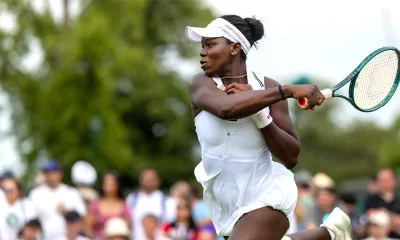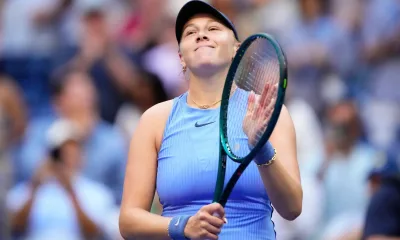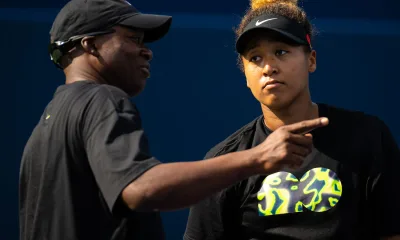Masters National Bank Open WTA
Montreal Final Preview: Naomi Osaka vs. Victoria Mboko
Osaka and Mboko meet in Montreal final, both unseeded yet resilient with match point saves.
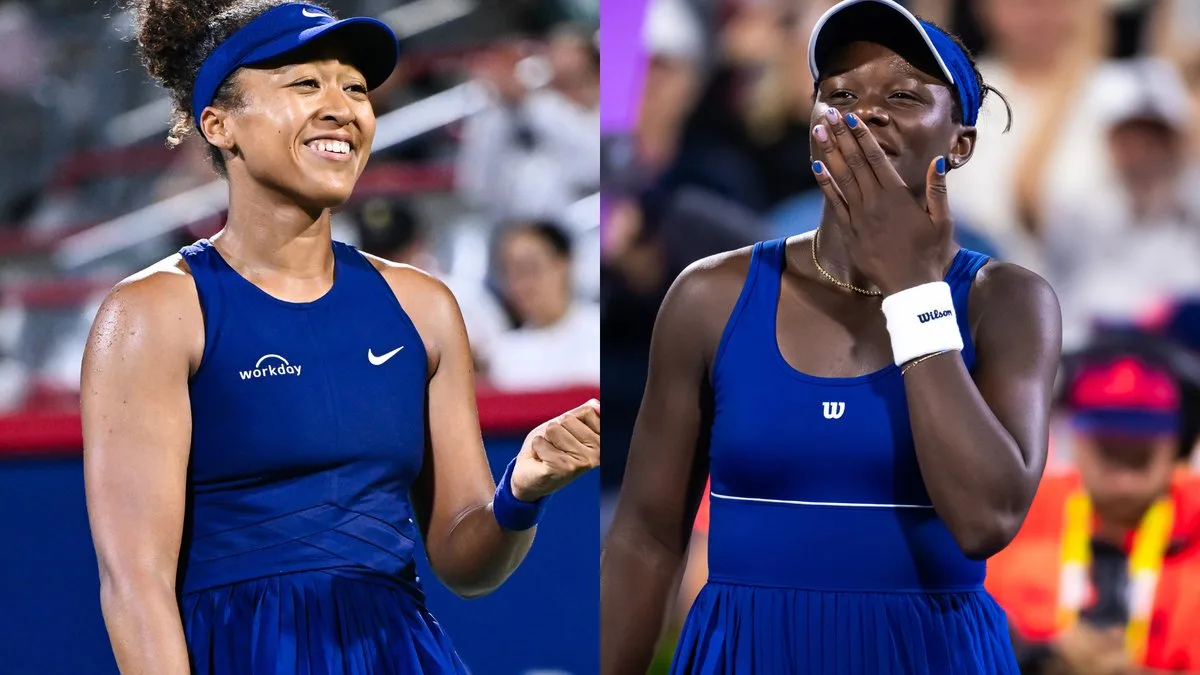
The Montreal final on August 7th features an intriguing matchup between Naomi Osaka and Victoria Mboko, two unseeded players whose journeys to this stage have captivated tennis fans. Despite their unseeded status, Osaka and Mboko have proven their resilience, each saving match points en route to the final.
Osaka, ranked 49th and aged 27, is a seasoned competitor with a history of success at the highest levels. Mboko, at 18 and ranked 85th, is a rising Canadian talent who has earned considerable support from local fans, especially after her dramatic win over Elena Rybakina.
Both players share backgrounds connected to the United States but represent different countries—Osaka for Japan and Mboko for Canada. Their playing styles exhibit powerful serving and hard hitting, qualities that have impressed throughout the tournament.
Mboko reflected on her quarterfinal victory against Rybakina: “I kind of put in my head that I want to stay in there with her, and I want to bring as many balls back in the court as I possibly could, despite she was hitting a really clean and hard ball.”
While Osaka has significant experience in finals and top-level competition, Mboko is still discovering her potential on the WTA Tour. The crowd support for Mboko could play a crucial role, especially considering Osaka’s momentary loss of composure during her semifinal match against Clara Tauson.
This final promises a compelling contest between tenacity and experience, with both athletes capable of rising to the challenge.
ATP BNP Paribas Open Masters
From Fans to Contenders: Iva Jovic and Learner Tien’s Indian Wells Homecoming
Iva Jovic and Learner Tien grew up visiting Indian Wells and return this year as rising tour stars .
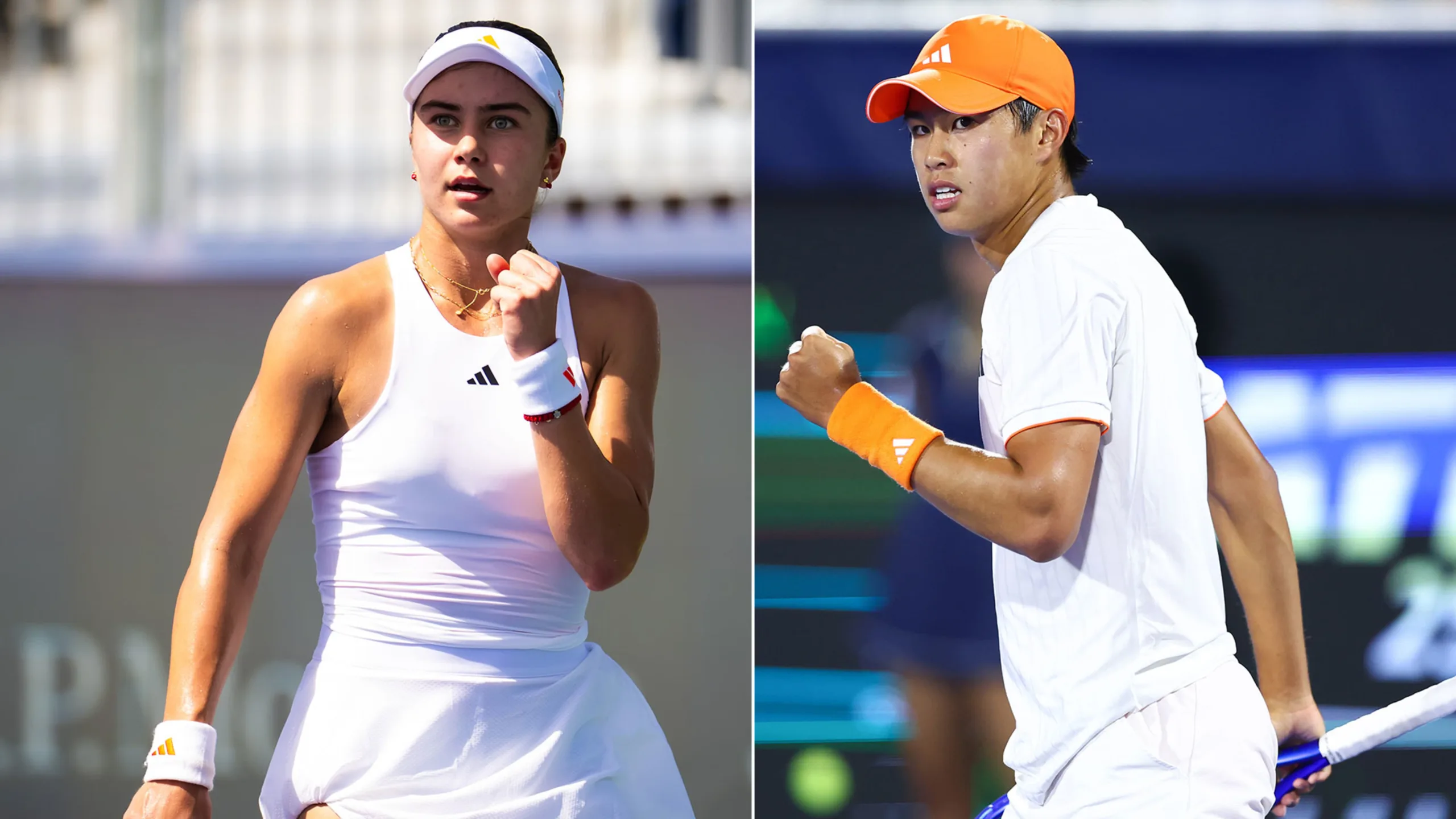
As children both Iva Jovic and Learner Tien visited Indian Wells with their families, the Tiens driving from Irvine and the Jovics from Torrance. Each arrived as a fan: Jovic waited in the sun for two and a half hours to try to get Novak Djokovic’s autograph; Tien’s earliest priority was the tournament’s frozen lemonades. “Those things are one of the greatest things ever,” he said, and he also remembers snagging a signature as Djokovic walked out of Centre Court. “I was one of the people hanging over the wall.”
Their journeys to the professional ranks have been rapid. Jovic only committed to tennis full time after the pandemic closed other sports in 2020. A year later she won the Orange Bowl and, four years after that, reached the Top 50. After an extensive pre-season working with coach Tom Gutteridge, she described the process plainly: “I took a pretty long pre-season, so I had a lot of time to get everything done.” She added, “There was a couple of specific things I was working on. There was a lot of physical stuff in the gym, a couple of technical tweaks with my ground strokes, with my serve, which took time as well.” The work showed in 2026: a final in Hobart, a first major quarterfinal in Melbourne and a 13-4 start to the season that left her ranked No. 18.
Tien’s progression has been similarly steady. After joining the tour in 2025 he displayed consistency and smart point construction, rising into the Top 30 as a rookie. By February 2026 he was at a career-high No. 23. He enlisted Michael Chang for coaching last summer to refine his serve, toss and tactics and has seen results, including a quarterfinal in Australia and a semifinal in Delray Beach. On Chang he said, “In general I think he’s very encouraging. He’s never getting down whether I’m playing well or whether I’m playing poorly. He’s always just consistently just giving me good energy, a lot of support.” He later joked, “There’s not that much video from way back then.”
Both players are second-generation Californians with immigrant family stories and compact frames — Tien 5’11, Jovic 5’7 — yet both have carved pathways that rely on craft, fitness and variety rather than sheer power. Tien will also appear in the doubles draw with Daniil Medvedev. For both, Indian Wells is a homecoming and a moment to return to the other side of the autograph line.
BNP Paribas Open Masters Player News
Vera Zvonareva embraces comeback at 41, balancing singles and doubles one day at a time
Vera Zvonareva, 41, returned after shoulder surgeries, mixing singles and doubles success. Returning
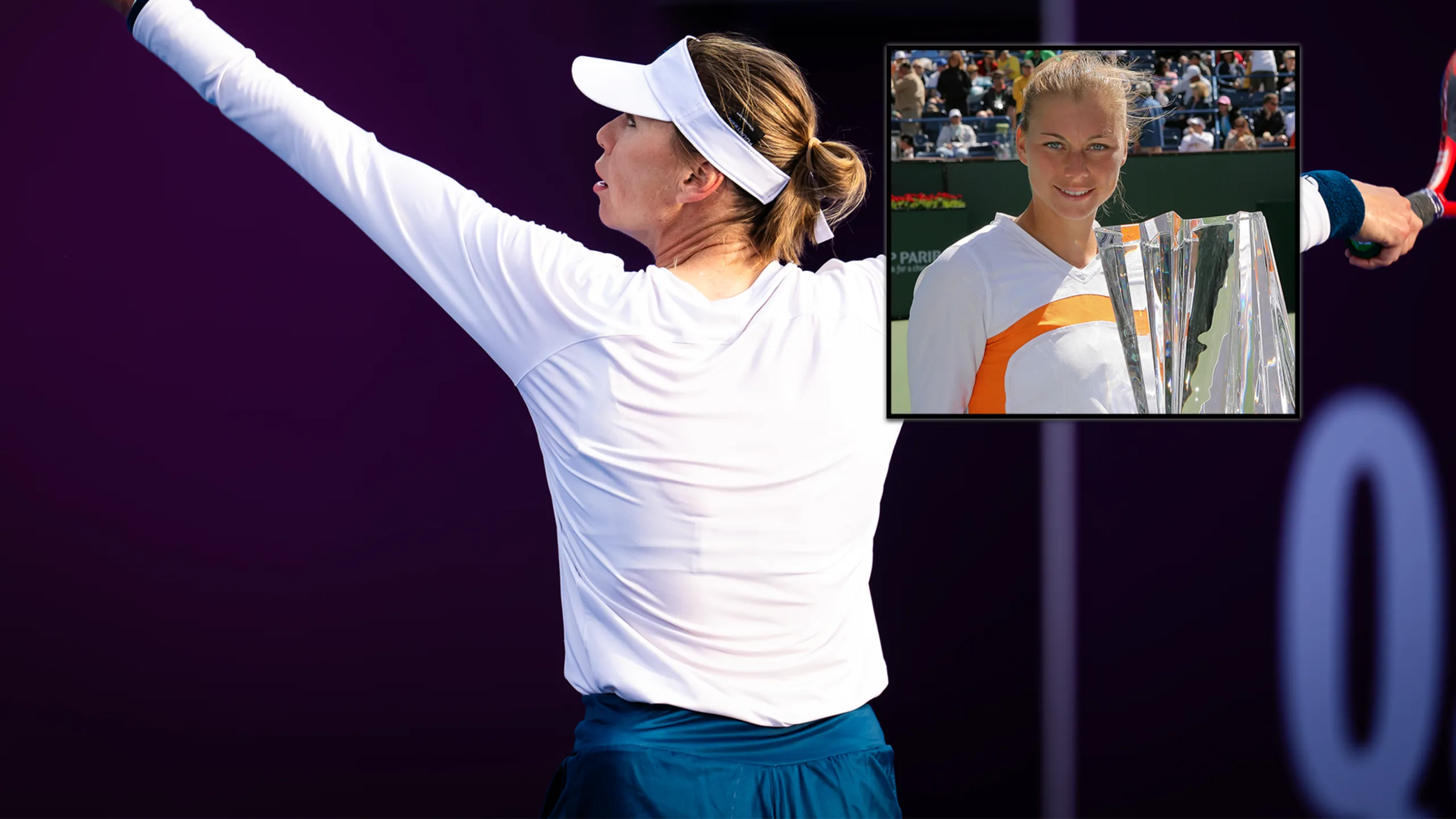
Seventeen years after her landmark BNP Paribas Open victory, Vera Zvonareva has returned to the tour following an 18-month absence and two shoulder surgeries. The former world No. 2, now 41, has shown competitive form across singles and doubles during a strong Middle East swing, including a Doha win over Peyton Stearns and an Australian Open doubles semifinal late last season.
Zvonareva’s 2009 BNP Paribas Open title — won in brutal windy conditions against Ana Ivanovic — remains a career highlight. She reached back-to-back Grand Slam finals at Wimbledon and the US Open in 2010 and later added two major doubles titles with a maternity break between those achievements.
Recalling her recent singles victory, she said, “Look, I didn’t start the match well, but I felt like she was playing a different game from my previous opponents. But I tried my best and knew I could fight through this match, that I could challenge her more. In the end, it worked out my way. I’ve been playing many years on tour and I know that, as long as I’m trying my best on the court, I can always give myself a chance.” That win marked her first main-draw WTA singles victory since October 2023 at the Qatar TotalEnergies Open.
On balancing disciplines and motivation, she was clear: “You know, I played so many matches in my career, so I don’t really think about it in that way, or in any of those ways. I’ve been putting a lot of efforts into doubles in the past few years, so especially with the success of my doubles before I took a break, I’d put singles on the side.
Now I’ve come back and I still want to play doubles because I enjoy it, but whenever I get a chance, I want to play singles, as well. I’m enjoying the moment of playing at a big tournament. That’s always nice.”
She described a cautious return after surgery: “I had a second shoulder surgery and to be honest, I wasn’t in a rush to come back. I took my time, I enjoyed spending time with family. As soon as I felt like I physically felt ok, I decided to try and see how it goes.” Zvonareva also noted the practical challenges of travel with a nine-year-old daughter and the preference to manage family life while competing. On doubles plans she added, “At the moment, nothing is set. We’ll see how it goes. I’m taking everything one day at a time.”
ATP BNP Paribas Open Masters
Bouchard: Indian Wells an ideal stage for Ben Shelton to carry U.S. hopes
Bouchard backs Ben Shelton as top U.S. hope at Indian Wells amid Paul and Fritz challenges this week
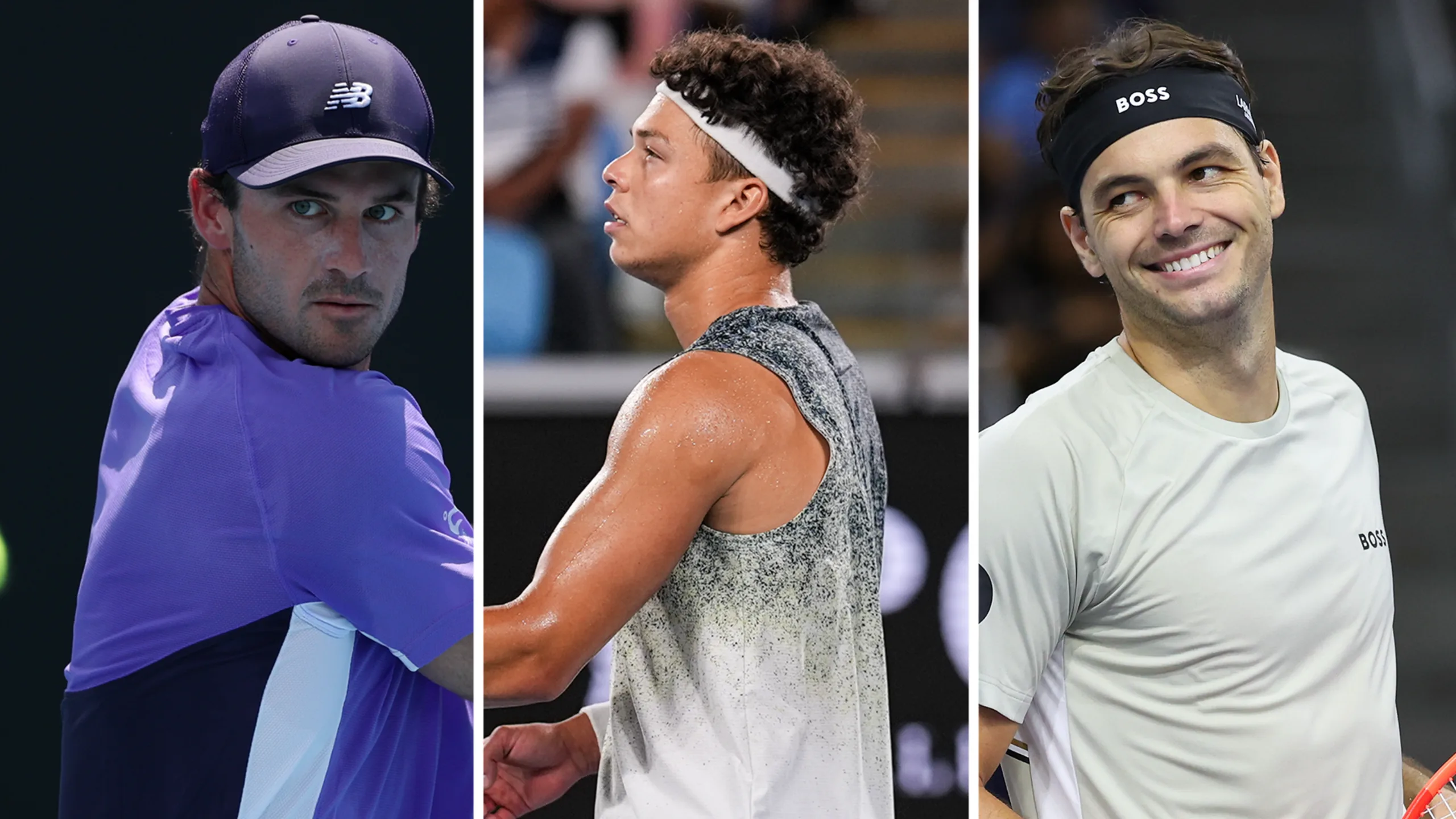
The 2026 BNP Paribas Open arrives with main-draw action beginning Wednesday, March 4, and American men figure prominently in the conversation at Tennis Paradise. Eugenie Bouchard singles out a compact group of U.S. contenders and places Ben Shelton at the center of expectations.
Ben Shelton. His game has shown clear evolution and he often lifts his level at the biggest events. With Indian Wells regarded as the premier U.S. tournament after the US Open, the setting feels appropriate for Shelton, who already won a first Masters 1000 title in Canada last summer.
Tommy Paul. After a 2025 season hampered by injury, Paul appears to have recovered and has produced a strong start to 2026. His Delray Beach win over Taylor Fritz—the only American man to win Indian Wells since Andre Agassi in 2001—was certainly a statement about his readiness to return to the Top 10 and beyond. Back to full health in Australia, he played great to reach the second week and gave Carlos Alcaraz all he could handle over three close sets in the fourth round. If he stays healthy and consistent, Paul could be the most dangerous American in the draw.
Taylor Fritz. Local support and familiarity with the event add weight to his prospects. “Total transparency: how can i go against my man in his hometown tournament? A tournament he’s the only one of his countrymen to have won before, no less.” That hometown element and previous success at the event create a compelling backdrop for his campaign.
Indian Wells will demand serve, return and stamina across large courts and long days. Between Shelton’s upward trajectory, Paul’s return to form and Fritz’s home-court narrative, the U.S. contingent arrives with several credible candidates to produce the best American result as the Sunshine Swing begins.
-
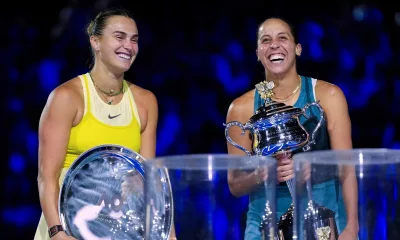
 ATPAustralian OpenGrand Slam2 months ago
ATPAustralian OpenGrand Slam2 months agoAustralian Open announces record A$111.5 million prize pool for 2026
-
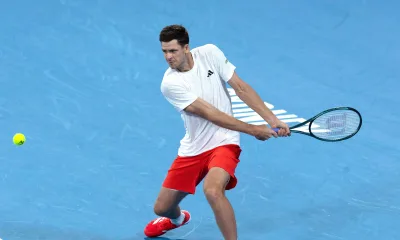
 ATPUnited CupWTA2 months ago
ATPUnited CupWTA2 months agoHurkacz edges Zverev in straight sets in United Cup return
-

 ATPPlayer NewsWTA2 months ago
ATPPlayer NewsWTA2 months agoVesnina rejects claim that podcast aired unapproved Kudermetova anecdote about Rune


